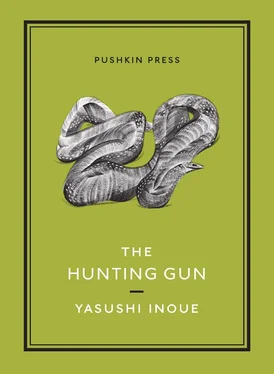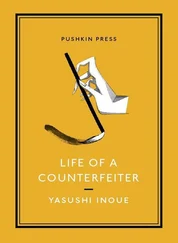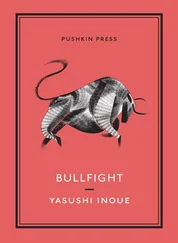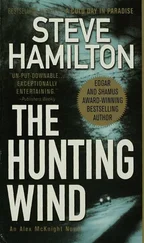When the girl in the seat next to mine took the paper from me, however, she glanced down at it for a moment and then, with hardly any hesitation, pencilled a big circle into the blank area beneath the words “to love”. I desire to love . I’ve always remembered very clearly how I felt when I saw her do it — provoked by her intransigence, but also caught off guard, uncertain what to think. This girl was not one of the better students in our class, and she had a sort of gloomy, unremarkable air. Her hair had a reddish-brown tinge; she was always by herself. I have no way of knowing what became of her when she grew up, but now, as I write these words twenty years later, I find myself recalling, for some reason, again and again, her forlorn face.
When, at the end of her life, a woman lies quietly in bed with her face turned to the wall of death, does God allow her to feel at peace if she has tasted to the full the joy of being loved, or if she is able to declare without any trepidation that, while she may not have been very happy, she loved? I wonder, though — can any woman in this world say with real conviction, before God, that she has truly loved? No, no — I’m sure there are women like that. Maybe that thin-haired girl was among the chosen few when she grew up. A woman like that, I’m sure, would walk around with her hair in a wild tangle, her body scarred all over, her clothing ripped to shreds, and yet she would proudly lift her face and say, “Yes, I have loved.” And then, having spoken those words, she would die.
Oh, it’s unbearable — I wish I could escape it. But as hard as I try to chase the vision of that girl’s face away, I can’t do it, it keeps coming back. What is this intolerable unease that clings to me as I sit here, hours before I am to die? I suppose I am simply reaping the punishment I am due as a woman incapable of enduring the pain of loving, who wanted for herself only the joy of being loved.
*
It saddens me that after thirteen happy, enjoyable years with you I must write this letter.
I knew it would come sooner or later — this moment that never left my thoughts, when the blazing boat on the ocean finally burns itself out. I am just too exhausted to live any longer. I have the feeling that I have, at last, succeeded in giving you the truth of who I am. The fifteen or twenty minutes of life embodied in this letter are not much, but they are the truth, free from deception. They are the life I lived.
I would like to say one more thing, in closing. Our thirteen years together went by like a dream. But I was always happy, even so, because you loved me. Happier than anyone in the world.
IT HAD GROWN QUITE LATE when I finished reading these three letters to Misugi Jōsuke. I took the one he had written to me out of my desk and read it again. I kept running my eyes over and over the vaguely suggestive sentences with which he had concluded: “My interest in hunting goes back several years, however, to a period when I was not as utterly alone as I am today, when my life, in both its public and its private dimensions, was without major disruption. Already, then, I could not do without the hunting gun on my shoulder. I mention this by way of closing.” As I kept reading those words I began, all at once, to sense in his gorgeous handwriting and its peculiar air of abandon a darkness that was almost unendurable. If I were to borrow Saiko’s metaphor, I might describe it as his snake.
I rose slowly to my feet and walked over to the north-facing window of my study, and stood there looking out into the dark March night, the trains on the government line sending out sprays of sparks in the distance. What could those three letters possibly have meant to Misugi? What knowledge could they have held out? None of the facts were new to him. He had long since come to understand the true nature of Midori’s snake, and Saiko’s.
I stood at the window for a long time, letting the cold wind gust against my cheeks. There was in my mental state a suggestion of drunkenness. I rested my hands on the window sill and peered out, as if Misugi’s “desolate, dried-up riverbed” were visible there, into the darkness of the small garden that lay beneath my window, crowded with trees.
I began my career as a novelist in 1949, the year I published The Hunting Gun. My next work, Bullfight , earned me the Akutagawa Prize, and with that I became a true writer. When I reread these two texts now, whatever qualities and defects they may have as literature, I find myself dazzled by the beginner’s enthusiasm that animated me in those days.
I was forty-two when The Hunting Gun and Bullfight were published. In the span of a man’s life this is already verging on old age, but within the context of my life as a writer there is no question that this was my adolescence, and these the works of a very green novelist.
They say that, as authors mature, they follow the trajectory charted by their first writings — a rule to which, it seems, there are no exceptions. If this is correct, then The Hunting Gun and Bullfight carry within them, alongside their youthful ungainliness, something fundamental from which I have never been able to break free. For this reason, I believe I am more fully present in their pages than in any of my other texts.
Forty years have flowed by since then without my seeing them go, fifty novels of varying length, a hundred and eighty novellas… When I consider the work I have done, I feel a little like I am gazing out at a garden gone to seed. Amaryllises poking up in random places, roses whose appearance leaves much to be desired. The flowers blooming there belong to the most diverse species, large and small, transplanted from the desert and the Himalayas. Weeds are encroaching everywhere. Yes, it is an untended garden. Each time I look upon this landscape, it seems somewhat different. Sometimes, when the sun is shining, I find it filled with clarity. Other days it is sunk in shadow, hushed and gloomy. No matter how it appears to me, though, this untamed garden is me. No one else but me, all there is to me.
Just as men are born under lucky or unlucky stars, so, too, literary works are more or less blessed by fortune. Some arrive in the world perfectly formed; others are born sickly. Certain works achieve celebrity, while others languish in the shadows, condemned to huddle all their lives in an out-of-the-way corner. Whether or not a work meets with success is to some extent a matter of caprice. Works the author approves of are ignored, and vice versa. The destinies of literary works are as fickle as those of men. Among the works I have published, some have had the good fortune to be much discussed, while others were forgotten almost as soon as they saw the light of day.
An author’s attachment to his works is not necessarily proportional to their success. On the contrary, he is overwhelmed by the desire to usher into the world works that he has been unable to complete, that remain unfinished. One notices this, naturally, in collections whose contents he himself has selected. This may well be their principal interest.
Some years ago, I put together a collection containing twenty-three texts: The Hunting Gun and Bullfight , which launched my career as a writer, and other novellas among the many I had written over the years with which I was particularly pleased. Had critics or readers been in charge of the selection, I have no doubt that the results would have been different.
YASUSHI INOUE
Tokyo, 1988
Originally published as the preface to the 1988 edition of
The Hunting Gun ( Le Fusil de Chasse )
published by Editions Stock









![Ричард Деминг - Whistle Past the Graveyard [= Give the Girl a Gun]](/books/412176/richard-deming-whistle-past-the-graveyard-give-t-thumb.webp)

